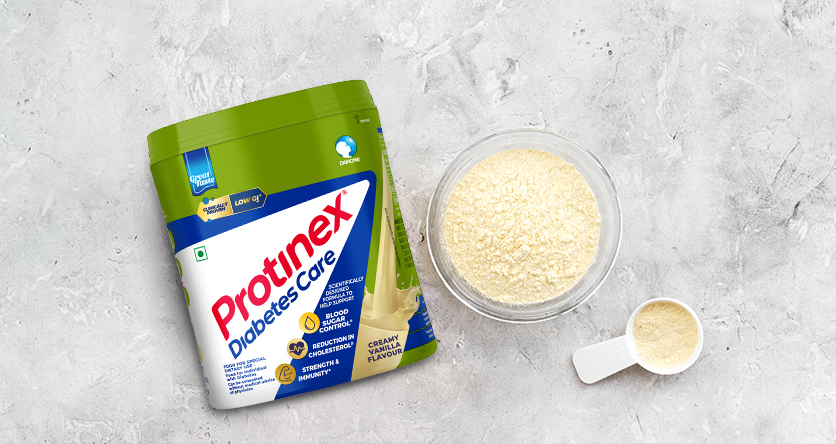Protein Powder for Diabetes – Supplements
These days, diabetes patients are being urged by doctors and nutritionists to include protein in their daily diet. Why? The body's needs are met by protein, and it's the most reliable energy source for keeping you healthy over the long haul. When blood sugar drops, the human body looks for proteins for fuel. The amino acids in the muscle protein are metabolized into glucose by the liver.
Therefore, protein powder for diabetics is the healthiest option for keeping a diabetic's blood sugar stable.
Protein powders are the best choice for a diabetic's diet since they are the safest and have the fewest side effects when taken regularly over the long term, which is necessary for maintaining consistent glucose levels. The damage to the diabetic's organs is only one of the numerous complications caused by carbohydrates and lipids.
Incidence and Subtypes of Diabetes
Insulin hormone synthesis from the pancreas is inadequate in people with diabetes, preventing glucose from being absorbed into the bloodstream. As a consequence, glucose isn't absorbed properly and builds up to dangerous levels in the blood.
No treatment exists for diabetes. However, with a healthy diet, active lifestyle, and regular exercise, diabetes may be controlled. Medications, including insulin injections, must be taken exactly as directed. Many life-threatening complications may arise from unmanaged diabetes.
The eyes, ears, and nerves are all vulnerable to damage from diabetes, in addition to the heart, kidneys, and liver.
Protein Powders: Different Forms
The use of protein powders is not new. These have mostly been recommended as dietary supplements by dieticians. Whey protein, soy protein, milk protein, egg protein, and rice protein are some of the protein powders for diabetic patients you may find on store shelves.
The good and bad of each option stand alone. Milk protein is popular among bodybuilders, but soy protein is more popular among vegans and vegetarians.
The high protein content in eggs is a selling point for many people, while the rapid protein absorption of whey makes it a popular alternative. Fewer people are allergic to rice protein than to other types. Isolate and concentrate whey protein powders are available in the market. Both adults and kids may benefit from consuming protein powders. It has benefits for the elderly as well.
Animal proteins, particularly those found in dairy products, may be superior to plant proteins in their ability to stimulate muscle protein synthesis and enhance body composition.
Milk protein is unique among the several types of protein powders on the market. If you've ever drunk a glass of milk and wondered why you weren't hungry for hours afterward, here is why. It's because of casein, a protein found in milk. Due to its sustained energy release, casein is a great choice for diabetics.
Casein's effectiveness is enhanced because its gradual continuous release of nutrients is well matched with the restricted quantity of insulin that can be generated by the pancreas in diabetes. So, if you want increased energy without the hassle of dieting, a protein powder containing casein is your best bet. However, if you have a milk allergy or lactose intolerance, you shouldn't consume milk protein.
Conclusion
Therefore, protein powder intake is not only safe for diabetes but may be therapeutic, leading to better glycemic control and a reduced risk of diabetes-related complications.
Also, Visit here: Is Protein Powder Safe for Toddlers?




Comments
Post a Comment